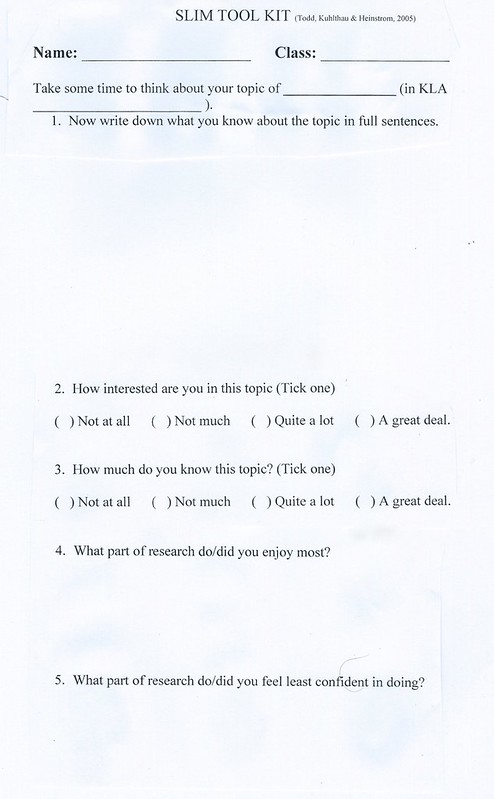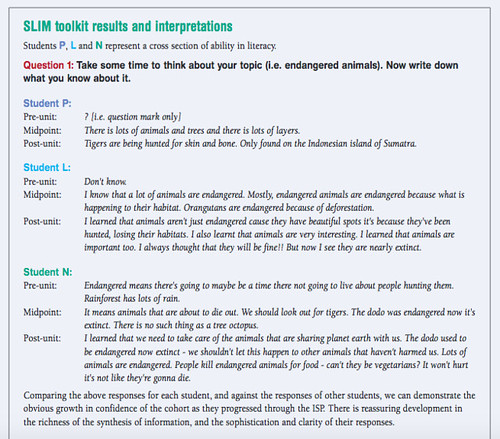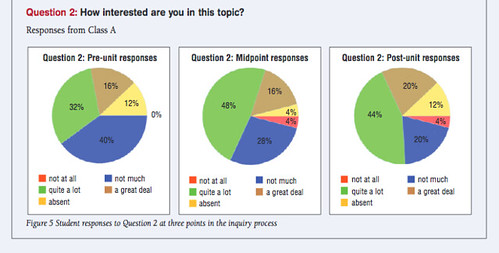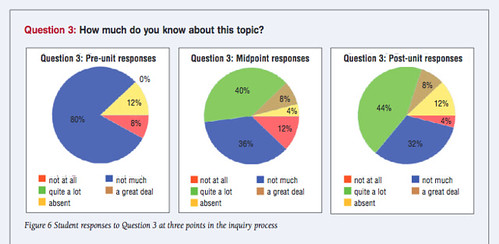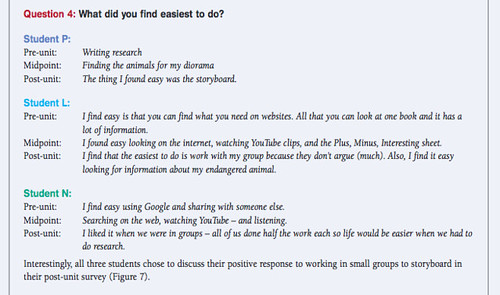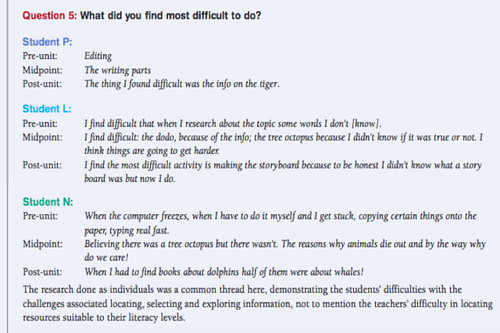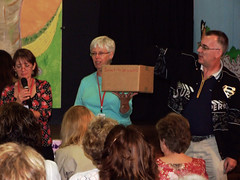I promised to get back to Monday’s professional development day with Jamie McKenzie. I’m finding it quite tricky to “report back” on an event, which offered so many seeds for further (and deeper) thought, without it sounding like I’m doing a cursory summary of the guest speaker’s main points – which are covered so much better in the “virtual handouts” Jamie has supplied on his official website(s). And it’s ironic that I’m now attempting to synthesise synthesis, think deeply about deep questions, authentically evaluate authentic evaluation and deconstruct the valuable elements of deconstruction!
It was certainly reassuring to be reminded that numerous aspects of the above elements have already become embedded into my teaching style over recent decades; the day certainly highlighted the need for all educators to be explicit about why we do certain things, to remind ourselves why these strategies work, and not to get too dismayed when it (often) appears that there are never enough opportunities to use them. It doesn’t matter how many of these days I go to, there are always be new ideas to try, ideas to scoff at (that I sometimes end up trying anyway, somewhere further along the track), and ideas I already use and now have additional confirmation that, yes, they really are worthwhile, and noteworthy.
My main purpose of starting up this blog was to reassure myself that it was the little, but purposeful, strategies we use in our teaching that can promote good – often excellent – results. The degree of planning and collaboration can vary, and when we are deep into a unit of work, it’s easy to forget that we are using them. So often, we launch into a unit with no pre-testing, or the end of term rushes up and blurs opportunities for authentic evaluation and formative assessment (Jamie mentioned that such assessment is “to enlighten, not frighten”), but when we do make the time to ensure it happens, the results can be very rewarding.. for the educators, their students and the school community.
Even more ironic, though, is that – among the brief notes (I didn’t have to take, because Jamie had given us all the URLs we needed) in front of me right now – I see that I have scrawled, under the “Strategies” heading, the point “4. Avoid heroics”. Now I’m writing this blog entry under a banner headline that promotes this site as “heroic adventures in teacher-librarianship”.
As I think I recall saying in my first few blog entries, on a day to day basis, we often overlook the amazing things we, as educators, do every day. Often, when I’m mentioning various parts of my day to others, it’s only then that it starts to crystalise how, or why, or when, certain elements were particularly effective/successful/innovative or worth repeating, testing, gathering evidence, or simply sharing.
Say these things around the PSP (Priorities Schools Programs) committee and one ends up chairing a sharing session for parents. Say these things around the editor of Scan and one ends up writing an article, sharing the ideas and findings with a much wider audience than the usual local group of teaching colleagues. Say these things too often around certain people and one can end up presenting panels at seminars!
I guess the important thing here is the sharing. Educators become educators for good reasons, and it was interesting that Jamie mentioned several times that – for quite a while – the so-called “digital literacy” and “computer literacy” buzzwords of one revolutionary information delivery service derailed us (temporarily) from the things that effective educators have always done well (ie. the titles of Jamie’s sessions on the day):
* “questions of import: wondering, pondering and comprehending
* authentic learning and assessment
* smart use of ICT
* quality teaching and learning: moves, tactics and strategies that inspire, challenge and engage
* embracing complexity: making sense of a confounding world.”
Jamie suggested many more strategies on Monday for us to try out, to test, and to incorporate. By osmosis, and also by design, some more of these shall no doubt permeate into my daily teaching, and those I’m already doing shall hopefully be strengthened – sometimes simply by highlighting them, and/or making them more explicit.
Well, I starting typing this on a Wednesday, and now it’s Thursday already. There are other gems I could share but, as I said, Jamie’s website talks about them far more effectively. Finding the time to focus on all, or even some, of the above, is sometimes difficult. Not focusing on them is worse. The collaboration opportunities for teachers to work with their teacher-librarians and other support staff become more vital than ever. In Australia, we are fortunate that the profession of teacher-librarianship continues to be valued (by many stakeholders), and it’s a profession that is ever-evolving; I hope we don’t ever have to go into battle mode to save it. (Again.)
Between the end of school yesterday, and arriving home, a colleague and I attending a meeting of Penrith Reading Project: Books from Birth, sharing our ideas and experiences about whole-school reading picnics, and how the numerous schools in our group might approach the upcoming ALIA National Simultaneous Reading Day, featuring the picture book Arthur by Amanda Graham and Donna Gynell. Using several points from Jamie’s sessions earlier in the week, we have come up with some fantastic, highly practical activities – which have quality teaching and learning embedded in them.
Just wait till you see the new wiki page we have planned for all the participating schools to dabble with in the next few weeks! (You just knew I was going to mention the word “wiki” eventually, didn’t you?) Roll on 21st May!

